Portal:United Kingdom
The United Kingdom Portal
 |
 |
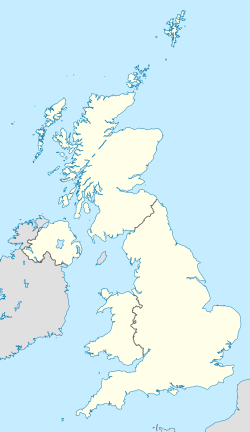
| |
The United Kingdom of Great Britain and Northern Ireland, commonly known as the United Kingdom (UK) or Britain, is a country in Northwestern Europe, off the coast of the continental mainland. It comprises England, Scotland, Wales, and Northern Ireland. The UK includes the island of Great Britain, the north-eastern part of the island of Ireland, and most of the smaller islands within the British Isles, covering 94,354 square miles (244,376 km2). Northern Ireland shares a land border with the Republic of Ireland; otherwise, the United Kingdom is surrounded by the Atlantic Ocean, the North Sea, the English Channel, the Celtic Sea, and the Irish Sea. The UK maintains sovereignty over the British Overseas Territories, which are located across various oceans and seas globally. The United Kingdom had an estimated population of over 68.2 million people in 2023. The capital and largest city of both England and the United Kingdom is London. The cities of Edinburgh, Cardiff, and Belfast are the national capitals of Scotland, Wales, and Northern Ireland, respectively.
The UK has been inhabited continuously since the Neolithic. In AD 43, the Roman conquest of Britain began; the Roman departure was followed by Anglo-Saxon settlement. In 1066, the Normans conquered England. With the end of the Wars of the Roses, the English state stabilised and began to grow in power, resulting by the 16th century in the annexation of Wales, and the establishment of the British Empire. Over the course of the 17th century, the role of the British monarchy was reduced, particularly as a result of the English Civil War. In 1707, the Kingdom of England and the Kingdom of Scotland united under the Treaty of Union to create the Kingdom of Great Britain. In the Georgian era, the office of prime minister became established. The Acts of Union 1800 incorporated the Kingdom of Ireland to create the United Kingdom of Great Britain and Ireland in 1801. Most of Ireland seceded from the UK in 1922 as the Irish Free State, and the Royal and Parliamentary Titles Act 1927 created the present United Kingdom.
The UK became the first industrialised country and was the world's foremost power for the majority of the 19th and early 20th centuries, particularly during the Pax Britannica between 1815 and 1914. The British Empire was the leading economic power for most of the 19th century, a position supported by its agricultural prosperity, its role as a dominant trading nation, a massive industrial capacity, significant technological achievements, and the rise of 19th-century London as the world's principal financial centre. At its height in the 1920s, the British Empire encompassed almost a quarter of the world's landmass and population, and was the largest empire in history. However, its involvement in the First World War and the Second World War damaged Britain's economic power and a global wave of decolonisation led to the independence of most British colonies. (Full article...)
Featured article
The Order of the Thistle is an order of chivalry associated with Scotland. While its original date of foundation is unknown, James VII instituted the modern Order in 1687. The Order consists of the Sovereign and sixteen Knights and Ladies, as well as certain "extra" knights (members of the British Royal Family and foreign monarchs). The Sovereign alone grants membership of the Order; he or she is not advised by the Government, as occurs with most other Orders. The sixteen members are required to be Scottish-born, though not the "extra" knights and ladies. The Order's primary emblem is the thistle, the national flower of Scotland. The motto is Nemo me impune lacessit (Latin for "No one provokes me with impunity"). The patron saint of the Order is St Andrew. Most British orders of chivalry cover the entire kingdom, but the three most exalted ones each pertain to one constituent country only. The Order of the Thistle, which pertains to Scotland, is the second-most senior in precedence. (Full article...)
Featured biography
Vivien Leigh was an English theatre and film actress. Although her film appearances were relatively few, she won two Academy Awards playing "Southern belles", Scarlett O'Hara in Gone with the Wind and Blanche DuBois in A Streetcar Named Desire, a role she had also played in London's West End. She was a prolific stage performer, frequently in collaboration with her husband, Laurence Olivier, who directed her in several of her roles. During her thirty-year stage career, she played parts that ranged from the heroines of Noël Coward and George Bernard Shaw comedies to classic Shakespearean characters such as Ophelia, Cleopatra, Juliet and Lady Macbeth. Lauded for her beauty, Leigh felt that it sometimes prevented her from being taken seriously as an actress, but ill health proved to be her greatest obstacle. Affected by bipolar disorder for most of her adult life, she gained a reputation for being difficult, and her career went through periods of decline. She was further weakened by recurrent bouts of tuberculosis, which was first diagnosed in the mid-1940s. She and Olivier divorced in 1960, and Leigh worked sporadically in film and theatre until her death from tuberculosis. (Full article...)
General images -
Subportals
WikiProjects
Things you can do
- Visit the British Wikipedians' notice board.
- The noticeboard is the central forum for information and discussion on editing related to the United Kingdom.
- Comment at the British deletion sorting page.
- This page lists deletion discussions on topics relating to the United Kingdom.
Featured pictures
Did you know -

- ... that in Crippled, author Frances Ryan describes a disabled British woman who was unable to afford heating or her specialist meals due to an austerity programme that began in 2010?
- ... that before Michael Shanks became Member of Parliament for Rutherglen and Hamilton West, he ran along all of Glasgow's 6,143 streets?
- ... that Sting wrote "We Work the Black Seam" because he felt that "the case for coal was never put to the nation" during the 1984–85 British miners' strike, which began 40 years ago today?
- ... that Phil Fletcher as Hacker T. Dog caused Lauren Layfield to make the "most famous snort" in the United Kingdom in 2016?
- ... that many places in the United Kingdom were racially segregated and non-white customers were banned from using spaces and facilities, even though the law never officially permitted such a colour bar?
- ... that the historian and political journalist Lancelot Lawton addressed a House of Commons committee in London in 1935, beginning: "The chief problem in Europe to-day is the Ukrainian problem"?
In the news
- 16 April 2025 –
- The United Kingdom suspends the import of cheese and meat products from the European Union to prevent the spread of foot-and-mouth disease. (BBC News)
- 16 April 2025 – Transgender rights in the United Kingdom, For Women Scotland Ltd v The Scottish Ministers
- The Supreme Court of the United Kingdom rules that legal gender is based upon biological sex for the purposes of the Equality Act 2010. (BBC News)
- 15 April 2025 – Sudanese civil war, Foreign aid to Sudan
- The European Union and its member states pledge €522 million (US$590 million) and the United Kingdom pledges £120 million (US$141 million) in humanitarian aid to Sudan to deliver food and supplies to over 650,000 internally displaced Sudanese people affected by the fighting between the Rapid Support Forces and the Sudanese Armed Forces. The two groups also call for an immediate ceasefire to end the war. (DW) (AP)
- 14 April 2025 – Russian invasion of Ukraine
- United Kingdom and the Russian invasion of Ukraine
- The United Kingdom sends £752 million ($990 million) to Ukraine for the purchase of surface-to-air missiles, artillery and spare parts for fighter aircraft, as part of an international loan programme funded primarily through seized Russian financial assets. (Reuters)
- 14 April 2025 – July Revolution
- A court in Dhaka, Bangladesh, along with the Anti-Corruption Commission, issues an arrest warrant for Tulip Siddiq, a United Kingdom MP who is the niece of ousted former leader Sheikh Hasina, for corruption allegations. Siddiq has rebuked the arrest warrant and called it a "smear campaign" against her. (DW) (BBC News)
Categories
Other UK-connected Wikipedias
Wikimedia
The following Wikimedia Foundation sister projects provide more on this subject:
-
Commons
Free media repository -
Wikibooks
Free textbooks and manuals -
Wikidata
Free knowledge base -
Wikinews
Free-content news -
Wikiquote
Collection of quotations -
Wikisource
Free-content library -
Wikiversity
Free learning tools -
Wikivoyage
Free travel guide -
Wiktionary
Dictionary and thesaurus




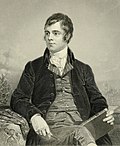






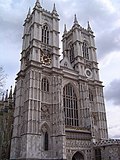












































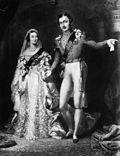



















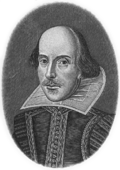



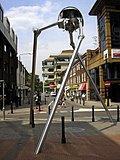










![Image 9 George IV Artist: Sir Thomas Lawrence An oil on canvas portrait of George IV of the United Kingdom as the Prince Regent, by Sir Thomas Lawrence. In 1814, Lord Stewart, who had been appointed ambassador in Vienna and was a previous client of Thomas Lawrence, wanted to commission a portrait by him of the Prince Regent. He arranged that Lawrence should be presented to the Prince Regent at a levée. Soon after, the Prince visited Lawrence at his studio in Russell Square. Lawrence wrote to his brother that: To crown this honour, [he] engag'd to sit to me at one today and after a successful sitting of two hours, has just left me and comes again tomorrow and the next day. More featured pictures](http://upload.wikimedia.org/wikipedia/commons/thumb/9/9f/George_IV_bust1.jpg/120px-George_IV_bust1.jpg)



























